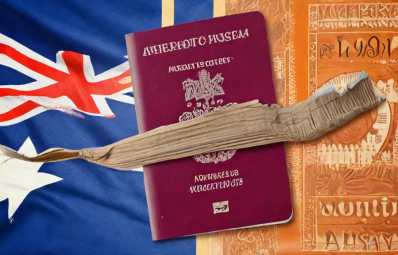How to Study in Austria on a Budget: A Guide for International Students
VISAPosted At: Feb 13, 2024 - 297 Views

How to Study in Austria on a Budget: A Guide for International Students
Austria is a beautiful country in the heart of Europe, known for its rich culture, stunning scenery, and high-quality education. It is also a popular destination for international students who want to pursue their academic goals in a diverse and welcoming environment.
However, studying abroad can be expensive, especially if you are not familiar with the local costs and opportunities. That is why we have prepared this guide for you, to help you find the best and cheapest universities in Austria for international students.
Tuition Fees in Austria
The good news is that tuition fees in Austria are very affordable compared to other European countries. In fact, many public universities in Austria do not charge any tuition fees for students from the EU or EEA member states, as well as some other countries that have bilateral agreements with Austria. These include Switzerland, Liechtenstein, Norway, Iceland, Turkey, and Bosnia and Herzegovina.
If you are not from these countries, you will have to pay a small amount of tuition, which is around €730 per semester for public universities and much higher costs for universities of applied sciences and private universities. However, this is still much lower than the average tuition fees in Europe, which can range from €3,000 to €12,000 per year.
You can also apply for scholarships, grants, or loans to cover your tuition fees or living expenses. There are many sources of financial aid available for international students in Austria, such as the Austrian government, the European Union, the Austrian Exchange Service (OeAD), and various foundations and organizations. You can find more information about scholarships and funding opportunities on the OeAD website.
Living Costs in Austria
Apart from tuition fees, you will also need to consider the living costs in Austria, which can vary depending on your lifestyle, location, and preferences. According to the OeAD, the average monthly living expenses for a student in Austria are around €950, which include accommodation, food, transportation, health insurance, and personal expenses.
The most expensive part of living in Austria is usually accommodation, which can cost between €300 and €500 per month, depending on the type and location of your housing. You can choose to live in a student dormitory, a shared apartment, or a private apartment, depending on your budget and availability. You can find more information about accommodation options and prices on the Housing Anywhere website.
Another major expense is food, which can cost around €250 per month, depending on your eating habits and preferences. You can save money by cooking your own meals, buying groceries from local markets or discount stores, and taking advantage of student discounts at cafeterias and restaurants. You can also enjoy the delicious and diverse cuisine of Austria, which offers a variety of dishes, from schnitzel and strudel to kebab and pizza.
Transportation is another important factor to consider, as you will need to get around the city and the country. The cheapest and most convenient way to travel in Austria is by public transport, which includes buses, trams, subways, and trains. You can buy a monthly or semester ticket, which will give you unlimited access to the public transport network in your city or region. You can also use a bike, which is a popular and eco-friendly mode of transport in Austria. You can rent or buy a bike from various shops or platforms, such as Bike Citizens.
Health insurance is mandatory for all students in Austria, regardless of their nationality or status. You will need to have a valid health insurance policy that covers your medical expenses in case of illness or injury. You can either use your existing health insurance from your home country, if it is valid and recognized in Austria, or you can buy a local health insurance plan from a public or private provider. The cost of health insurance can vary depending on your age, health condition, and coverage, but it is usually around €60 per month. You can find more information about health insurance in Austria on the Study in Austria website.
Personal expenses are the last category of living costs that you will need to consider, which include clothing, entertainment, hobbies, travel, and other miscellaneous items. These can vary widely depending on your personal preferences and lifestyle, but you can expect to spend around €150 per month on average. You can save money by taking advantage of student discounts, free or cheap events, and online platforms that offer deals and coupons. You can also explore the rich and diverse culture of Austria, which offers a lot of attractions, activities, and experiences for students, such as museums, theaters, festivals, sports, and nature.
Cheap Universities in Austria for International Students
Now that you have an idea of the costs and opportunities of studying in Austria, you might be wondering which universities are the best and cheapest for international students. Austria has a lot of high-quality and affordable universities that offer a wide range of programs and degrees in various fields and disciplines. Here are some of the cheapest universities in Austria for international students, based on their tuition fees and rankings:
- University of Vienna: The University of Vienna is the oldest and largest university in Austria, as well as one of the most prestigious and renowned in Europe. It offers more than 180 programs and degrees in various fields, such as arts, humanities, social sciences, natural sciences, law, medicine, and theology. It has a strong international reputation and attracts more than 10,000 international students every year. The tuition fee for non-EU/EEA students is €726.72 per semester, plus a student union fee of €20.70. The University of Vienna is ranked 154th in the world and 61st in Europe by the QS World University Rankings 2022.
- Vienna University of Economics and Business (WU): The Vienna University of Economics and Business is the largest and most prestigious business school in Austria, as well as one of the leading institutions in Europe. It offers more than 40 programs and degrees in various fields, such as business, economics, management, finance, accounting, marketing, and entrepreneurship. It has a strong international orientation and cooperates with more than 240 partner universities around the world. The tuition fee for non-EU/EEA students is €726.72 per semester, plus a student union fee of €20.70. The WU is ranked 201st in the world and 81st in Europe by the QS World University Rankings 2022.
- University of Innsbruck: The University of Innsbruck is the third-largest and oldest university in Austria, as well as one of the most innovative and research-oriented institutions in the country. It offers more than 120 programs and degrees in various fields, such as engineering, natural sciences, medicine, law, social sciences, humanities, and education. It has a strong international focus and hosts more than 5,000 international students every year. The tuition fee for non-EU/EEA students is €726.72 per semester, plus a student union fee of €20.70. The University of Innsbruck is ranked 266th in the world and 108th in Europe by the QS World University Rankings 2022.
- Graz University of Technology: The Graz University of Technology is one of the leading technical universities in Austria, as well as one of the most prestigious and respected institutions in Europe. It offers more than 50 programs and degrees in various fields, such as engineering, natural sciences, architecture, computer science, mathematics, and physics. It has a strong international profile and collaborates with more than 300 partner universities around the world. The tuition fee for non-EU/EEA students is €726.72 per semester, plus a student union fee of €20.70. The Graz University of Technology is ranked 351st in the world and 143rd in Europe by the QS World University Rankings 2022.
- Johannes Kepler University Linz: The Johannes Kepler University Linz is one of the youngest and most modern universities in Austria, as well as one of the most dynamic and innovative institutions in the country. It offers more than 60 programs and degrees in various fields, such as law, social sciences, economics, business, engineering, natural sciences, medicine, and education. It has a strong international outlook and welcomes more than 3,000 international students every year. The tuition fee for non-EU/EEA students is €726.72 per semester, plus a student union fee of €20.70. The Johannes Kepler University Linz is ranked 501st in the world and 201st in Europe by the QS World University Rankings 2022.






